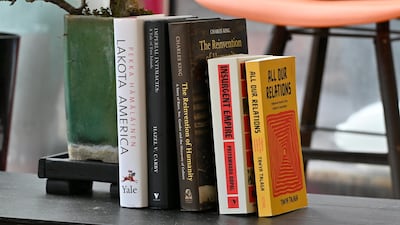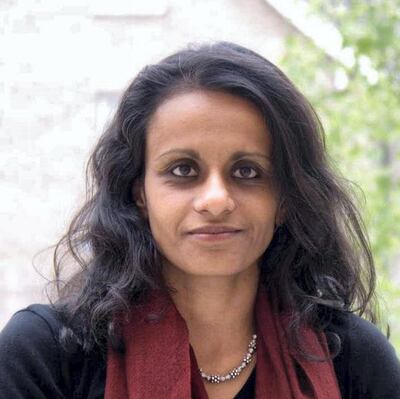The winner of a prestigious £25,000 ($32,582) international prize for non-fiction has been announced in a YouTube ceremony.
Professor Hazel V Carby was named winner of the British Academy's eighth Nayef Al Rodhan Prize for Global Cultural Understanding 2020, for her book Imperial Intimacies: A Tale of Two Islands (Verso).
It was selected from a record number of more than 100 submissions.
“I am overwhelmed a deeply honoured,” Carby said. “It has been an extraordinary experience to read the work of the other [shortlisted authors].
“I am also thrilled that the Rodhan prize encourages and rewards global cultural understanding, recognising the urgent need to transcend national boundaries and create new forms of international solidarity.
"We have never needed this solidarity more.”
Judge Patrick Wright said it had been an “extraordinarily difficult” task to pick the winner.
In her book, Carby recalls growing up in post-war England and Wales, as the daughter of a Jamaican father and Welsh mother, to trace the history of her family as it was shaped under the British Empire.
For three decades, she taught at Yale University as the Charles C and Dorothea S Dilley professor of African-American studies and professor of American studies.
The five books on this year’s shortlist feature some of the most important global issues of the day, but the legacies of empire around the world were predominant.
The writers covered colonialism, the plight and resistance of indigenous people and the role of pioneering cultural anthropologists – almost all women – during the early 20th century.
The prize is sponsored by the Saudi international relations scholar, neurophilosopher, author and international relations scholar, Dr Nayef Al Rodhan.
The other four shortlisted books were:
- Insurgent Empire – Anticolonial Resistance and British Dissent by Priyamvada Gopal (Verso)
- Lakota America: A New History of Indigenous Power by Pekka Hamalainen (Yale University Press)
- The Reinvention of Humanity: A Story of Race, Sex, Gender and the Discovery of Culture by Charles King (The Bodley Head)
- All our Relations: Indigenous Trauma in the Shadow of Colonialism by Tanya Talaga (Scribe)
The other shortlisted writers:
Priyamvada Gopal
"Priyamvada Gopal, University Reader in Anglophone and Related Literatures in the Faculty of English and Fellow of Churchill College, Cambridge, is shortlisted for Insurgent Empire – Anticolonial Resistance and British Dissent.
"In this important study of anti-colonialism, Gopal makes the point that the imperial project was fiercely resisted outside Britain and in that resistance emerged the ideas of what it means to be free."
Pekka Hamalainen
"With Lakota America: A New History of Indigenous Power, Pekka Hamalainen, Rhodes Professor of American History and Fellow of St Catherine's College at the University of Oxford, delivers a highly original and long-overdue history of the Lakotas – the tribe of Sitting Bull and Crazy Horse – and their profound role in shaping America's colonial and indigenous histories.
"The book argues that without the Lakotas we cannot truly understand early American history and European colonialism in North America."
Tanya Talaga
"Indigenous history and the impact of colonisation is further explored by the award-winning Canadian journalist Tanya Talaga who is shortlisted for All our Relations: Indigenous Trauma in the Shadow of Colonialism.
"In this sharply presented analysis, she explores intergenerational trauma, the alarming rise of youth suicide among Indigenous people in Canada, and the enduring impact of separation of First Nation peoples from their land."
Charles King
"Meanwhile, in The Reinvention of Humanity: A Story of Race, Sex, Gender and the Discovery of Culture, Charles King, Professor of International Affairs and Government at Georgetown University, explores how a group of pioneering cultural anthropologists, mostly women, shaped our interpretation of the modern world."
Previous winners of the prestigious prize include Toby Green for A Fistful of Shells: West Africa from the Rise of the Slave Trade to the Age of Revolution (2019); Kapka Kassabova for Border: A Journey to the Edge of Europe (2018); Timothy Garton Ash for Free Speech (2017); Prof Carole Hillenbrand for Islam: A New Historical Introduction (2016); and Dr Neil MacGregor for A History of the World in 100 Objects and Germany: Memories of a Nation (2015).







